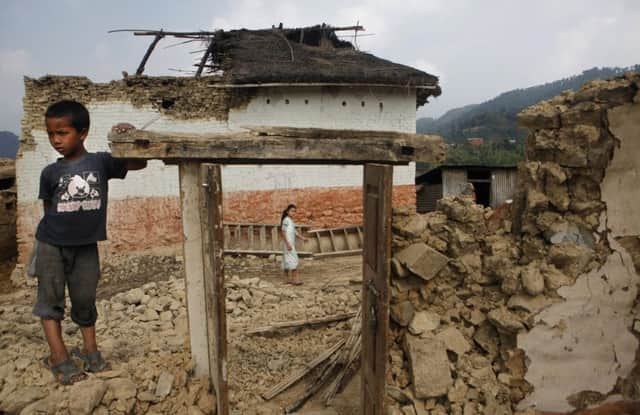Nepal earthquake ‘will keep million kids from school’


The international charity said nine out of ten schools have been destroyed in the worst-affected districts of the country and that almost 24,000 classrooms were damaged or destroyed.
Unicef is trying to set up temporary learning spaces for children.
Advertisement
Hide AdAdvertisement
Hide AdAll schools are closed, although many of those still standing are being used as emergency shelters and they are due to reopen on Friday, 15 May. A Unicef spokesman in Katmandu said: “We know that children need to go to school not only to learn, but schools are places of protection for children who have been through the trauma of an earthquake.
“It protects them from exploitation and abuse because everybody knows what they are doing and where they are.
“Unicef has already set up 30 child-friendly spaces in temporary camps and settlements in Kathmandu.
“These are places where children can play and learn and sing and dance in a protected environment.”
Meanwhile, the international response has been slow to an appeal for emergency funds to help the millions of people affected.
Jamie McGoldrick, the UN’s chief official in the Himalayan nation, said the agency had received $22 million (£14.2m) so far against an appeal last week for $415m to support the relief efforts for the first three months.
“This needs to be dramatically ramped up,” he told reporters in the capital, Kathmandu.
The earthquake on 25 April killed more than 7,800 people and injured thousands more.
Advertisement
Hide AdAdvertisement
Hide AdGovernment figures showed that tens of thousands of houses have been demolished and assistance is immediately needed for 400,000 families.
The UN estimates that as many as eight million people have been affected by the 7.8 magnitude earthquake.
Mr McGoldrick said his agency’s main focus now was to reach the many affected people in remote areas.
He added: “And we need to do so urgently, so that people have roofs over their heads and their other urgent needs are addressed before the monsoon season starts.”
The monsoon rains generally start in the second week of June and often trigger landslides in the mountains and flooding in the southern plains.
But roads are already blocked by landslides triggered by last month’s earthquake and there are fears that rain hitting soil loosened by the earthquake could easily trigger more landslides.
Yesterday, a UN health official said there have been no epidemics in areas hit by the earthquake so far or in the temporary camps where homeless people are sheltered.
Some cases of diarrhoea have been reported, but that is normal for this time of year, said Poonam Singh, the World Health Organisation’s deputy regional director for south-east Asia.